- myFICO® Forums
- Types of Credit
- Credit Cards
- Re: MAX Rewards. Creating the Arsenal.
- Subscribe to RSS Feed
- Mark Topic as New
- Mark Topic as Read
- Float this Topic for Current User
- Bookmark
- Subscribe
- Mute
- Printer Friendly Page
MAX Rewards. Creating the Arsenal.
Is your credit card giving you the perks you want?
Browse credit cards from a variety of issuers to see if there's a better card for you.
- Mark as New
- Bookmark
- Subscribe
- Mute
- Subscribe to RSS Feed
- Permalink
- Report Inappropriate Content
Re: MAX Rewards. Creating the Arsenal.
Sallie Mae used to offer (may still offer it) a 2% on everything VISA card. They have taken down the application page, but I have read that you can still call to apply for it. Again this is only what I have read so don't quote me on it.
- Mark as New
- Bookmark
- Subscribe
- Mute
- Subscribe to RSS Feed
- Permalink
- Report Inappropriate Content
Re: MAX Rewards. Creating the Arsenal.
Yes - Chase limits the 5% to the first $1,500 each period. Good call having the Discover for backup
- Mark as New
- Bookmark
- Subscribe
- Mute
- Subscribe to RSS Feed
- Permalink
- Report Inappropriate Content
Re: MAX Rewards. Creating the Arsenal.
@ztnjpv wrote:I never really see a thread about this. So excuse if it exists.
Looking at current offers, this is how I see the maximum rewards combination of cards. Feel free to correct or add unmentioned offers as this is a work in progress as new offers come to market. Now, I realize that some people have particular goals for which certain cards deliver better value for certain redemption categories. However, in the world of cash back value at about one cent per point or flat out cash back, there is an optimum mix with the current offerings available. Here is how I see it (Biz Cards left out):
Gas: PenFed...hands down. PenFed Platinum Rewards at 5 points or PenFed Cash Rewards at 5%. The 5 points equal 5% cash back in the form of prepaid cards. Only problem is that you have to spend it. Can't save it. Just make sure you use it on stuff that doesn't fall into a bonus category on any card. I mention that points version because of the next category. If you can't get that card. The Chase Freedom has 5% on gas half the year and 1% the other half. If you don't use up $1500 per quarter rewards spending, you can buy gas cards during rich times to redeem during 1% times. BofA 123 gives 3.3% if you deposit into a BofA checking because of the 10% bonus.
Groceries. Two Answers. If you don't shop at Walmart SC's, the obvious choice is Amex Blue Cash Preferred at a whopping 6%, If you do shop at Walmart SC's, then Visa rewards cards are the way to go since WalMart SC's use the supermaket code of 5411 under the Visa system. There, you have the anove mentioned PenFed Platinum rewards Visa at 3 points. If you can't get that card, the BofA 123 cash rewards gives 2.2% if you deposit in a BofA checking because of the 10% bonus. BTW, if you have $50k in assets between BofA and Merrill, you qualify for Platinum Privileges, which gives a 50% bonus.
Restaurants. @Excluding Citi forward as it is only for students @ 5%, 2% seems to be tops. Any ideas? US Bank (if you pick the category) and Venture to name two. Of course, if you have better rewards cards, you can buy gift cards at places in those categories to your favorite places. But that will limit you to chains or places with offers through places working with the Chase Ultimate Rewards Mall via discount restaurant sites that give extra cash back. But you can't just walk in and swipe anywhere with those. Strictly in the 5% group with US Bank cash + would be fast food places. Not a bad start. Or, US Bank Cash+ has all other kinds of restaurants as another 5% category. That's the best you'll find.
Utilities. US Bank's new Cash + makes this category accessible in the consumer card realm. Just pick Bill Pay as a 5% bonus category and pay your cell, landline, insurance and utlity bills. This category is huge.
Now that covers daily normal spending. US Bank is quite a beauty with other 5% choices to pick from. But really, Gas, Groceries and Utilities about covers the bulk of people spend money on every month.
With that in mind, if you shop Walmart SC's for groceries, A PenFed Platinum rewards and a US Bank Cash + pretty much gets you the best of mundane daily, weekly and monthy spending. From there, a Chase Freedom helps pick up some extra stuff througout the year. And a 1.5% Cash Rewards from Cap1 (or Venture at 2% if you don't mind the miles) gives you a better baseline for everything else.
If you shop for grcoeries at regular grocery stores, then PenFed Cash rewards for gas and Amex Blue Cash for groceries couples with the US Bank Cash + for utilities through bill pay does even better.
OP-- Where did you get the idea that Citi Forward is a "student" card? I applied about a decade out of college and received a five figure CL. Citi Forward is the best restaurant card, period.
On that same note, Citi Forward also gives you 5 points/$1 for movies, bookstores and Amazon.com!
My only issue with the card is that Citi has tinkered with the value of points several times; however, currently it is possible to get $0.01/point value -- making it a true 5% card.
- Mark as New
- Bookmark
- Subscribe
- Mute
- Subscribe to RSS Feed
- Permalink
- Report Inappropriate Content
Re: MAX Rewards. Creating the Arsenal.
I'm working on a similar strategy as you.
Another card I would add to the mix is the Target Red Card -- which gives you a 5% discount off of Target purchases (it all gives you free shipping for all Target.com orders). I recently used this card to buy some third-party gift cards online, and when combined with a coupon was able to save 14.5% off the face value of the gift card.
Between DW and I, we currently hold and use:
- Amex Blue Cash Preferred -- 6% for groceries, 3% for gas
- Citi Forward -- 5% for dining, bookstores, movies and Amazon.com
- Sallie Mae Visa Signature -- 2% on all spending
- Chase Sapphire Preferred -- 2% for travel, dining and no foreign transaction fee (they also had a nice $500+ sign up bonus)
- Target Red Card -- 5% discount
- Amex Hilton HHonors -- 6 points/$1 for cable
I think I calcuated somewhere that I should hit around 3.75%-4.25% this year, excluding signup bonuses (which, together, DW and I have received about $2K in cash/statement credits, 30K SPG points, 60K Delta points and 100K Hilton points).
The only thing I'm missing is a 5% gas card, but at our spend it will net just $34/year in additional rewards compared to Amex BCP. For the cost of a hard inquiry and a new account, I'd rather get a card with a $300-$800 signup bonus and be covered for 8-1/2 to 23-1/2 years worth of additional gas cash back. ![]()
- Mark as New
- Bookmark
- Subscribe
- Mute
- Subscribe to RSS Feed
- Permalink
- Report Inappropriate Content
Re: MAX Rewards. Creating the Arsenal.
@Anonymous wrote:Sallie Mae used to offer (may still offer it) a 2% on everything VISA card. They have taken down the application page, but I have read that you can still call to apply for it. Again this is only what I have read so don't quote me on it.
The customer service reps say they still accept applications for it.
- Mark as New
- Bookmark
- Subscribe
- Mute
- Subscribe to RSS Feed
- Permalink
- Report Inappropriate Content
Re: MAX Rewards. Creating the Arsenal.
Stan,
I thought Hilton Honor points don't really translate into 1 point = 1 cent or even 1 point = 1 mile. Hilton's redemption and point system is complicated. Given that you get 3 points per dollar spent on anything, I would only read getting 6 points for internet as 2%.
- Mark as New
- Bookmark
- Subscribe
- Mute
- Subscribe to RSS Feed
- Permalink
- Report Inappropriate Content
Re: MAX Rewards. Creating the Arsenal.
@Anonymous wrote:Stan,
I thought Hilton Honor points don't really translate into 1 point = 1 cent or even 1 point = 1 mile. Hilton's redemption and point system is complicated. Given that you get 3 points per dollar spent on anything, I would only read getting 6 points for internet as 2%.
You're right about Hilton HHonors points -- they their value does range greatly. Plastic IQ values them at $0.005/point, which would make the Amex Hilton HHonors card equivalent to a 1.5% card for standard purchases and 3% for bonus categories.
The utility of the points and the card isn't as high as a straight cashback, but when combined with other perks it's worth it. We were able to get several nights in the mid-tier Hilton properites (i.e. Hilton Garden Inn) on the signup bonuses alone. For the cost of a single inquiry each, we got 100K in points (~$500), plus two new 10-year old TLs for DW (one on her own and one AU -- she's still doing some rebuilding), a no annual fee card that allows you to drop a charge or two a year to keep your points from expiring, and four additional Small Business Saturday $25 statement credits. ![]()
- Mark as New
- Bookmark
- Subscribe
- Mute
- Subscribe to RSS Feed
- Permalink
- Report Inappropriate Content
Re: MAX Rewards. Creating the Arsenal.
Well done, stan the man! Thumbs up!
Looks to me like all that you need to complete your set is that new US Bank Cash+ Visa. 5% on bill pay for your utilities, cells and insurance, which are likely paying via check, ACH or base rewards credit cards, is all you need to have all your bases covered. Plus, there's another 5% category to pick from. Just keep in mind that many of the utlilities will come with fees from payment processor. I checked out my electric bill through the link provided and it slapped me with a 2.7+% fee. So I would really only net about 2.2+% on that bill. Not bad but it does take some of the glee out it.
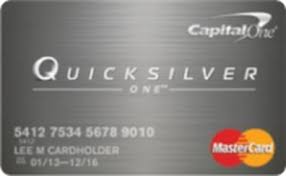


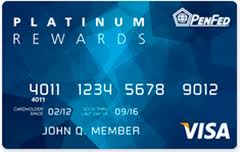
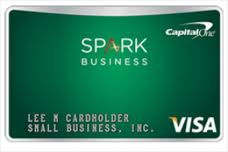
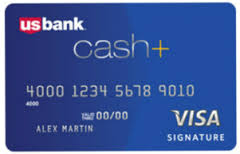
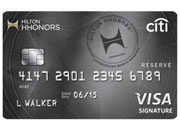
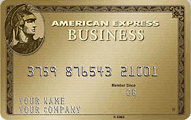
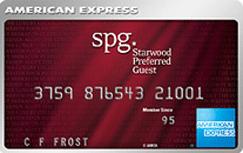
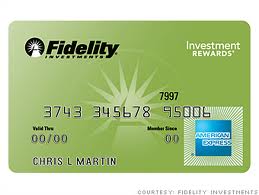
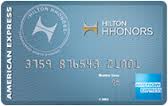
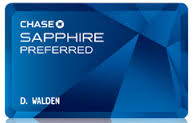

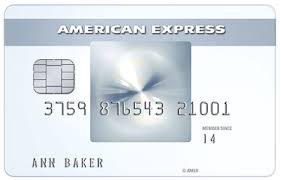 Start (Sept 2011): low-mid 600s. NOW: TU FICO: 801, EQ FICO 808, EX FICO 798 (PSECU). Goal: Achieved! Now Maintain!
Start (Sept 2011): low-mid 600s. NOW: TU FICO: 801, EQ FICO 808, EX FICO 798 (PSECU). Goal: Achieved! Now Maintain!
- Mark as New
- Bookmark
- Subscribe
- Mute
- Subscribe to RSS Feed
- Permalink
- Report Inappropriate Content
Re: MAX Rewards. Creating the Arsenal.
That US Bank Cash+ card definitely looked tempting though I just got my Chase Marriott & United Explorer card for the sign up bonus so I'll wait for another year to do any more apps. I'll lose out on $200 plus by not signing up with that card.
The Hilton card is a dud to us as I found it extremely difficult to redeem and when I do, I usually find a Starwood property close by for significantly less points. For example, I went on a trip to Disney in Anaheim recently, lowest points per night at the nearby property is at 35k pts (cat 5) per night, starwood is at 4k pts (cat 2) per night. At the next level for availability, starwood have two other properties at 7k pts (cat 3) and hilton have one other property at 40k pts (cat 6). Not only are the rooms more readily available at the Sheraton I went to (the Hilton at 35k was unavailable), the amount of pts required are significantly less even at 1 pts for each dollar. Someone might say that its unfair to compare a category 2 starwood to a category 5 hilton, but I didn't see any difference in the ammenities offered and hilton seems to overinflate their redemption categories too. Due to that, my Hilton card in a drawer getting one transaction a year with about a 100k pts in the account that I haven't find the use for.
- Mark as New
- Bookmark
- Subscribe
- Mute
- Subscribe to RSS Feed
- Permalink
- Report Inappropriate Content
Re: MAX Rewards. Creating the Arsenal.
@ztnjpv wrote:Well done, stan the man! Thumbs up!
Looks to me like all that you need to complete your set is that new US Bank Cash+ Visa. 5% on bill pay for your utilities, cells and insurance, which are likely paying via check, ACH or base rewards credit cards, is all you need to have all your bases covered. Plus, there's another 5% category to pick from. Just keep in mind that many of the utlilities will come with fees from payment processor. I checked out my electric bill through the link provided and it slapped me with a 2.7+% fee. So I would really only net about 2.2+% on that bill. Not bad but it does take some of the glee out it.
Signing up quaterly for the bonuses is not ideal, but it's also not a deal breaker. My only concern is, do they offer the same category bonuses every quarter to choose from?
I can't find any public information that says exactly what they do. In fact this seems to suggest the opposite:
Also, they seem to have pretty narrow bonus categories. For example: Citi Forward restaurants include restaurants and fast food, while U.S. Bank seperates them into two groups (of which I only get to pick two per quarter). Similarly, other cards offer 2% (Chase Sapphire Preferred, Amex True Earnings) and 3% (Chase AARP) cash back on travel, but U.S. Bank seperates travel into several groups (i.e. hotels, airlines, car rental). Lastly, U.S. Bank charges a helfty 3% foreign transaction fee -- which reduces the utility of the travel bonuses.
None of that serves as a death knell for the card if you have a wallet full of options, you keep on top of the bonus selections, and know where your spending is going to spike for the next 90 days.